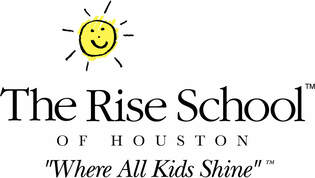Philosophy and Goals
The goals of Rise are to:
The school adheres to the philosophy and recommended practices of both early childhood special education and general early childhood education. The philosophy is based on the following premises and design of the Rise Program at the University of Alabama:
- provide family-centered services designed to meet the individualized needs of all children and families
- provide a blend of educational and therapy services within the context of a developmentally appropriate curriculum, and
- to prepare children for their next educational environment.
The school adheres to the philosophy and recommended practices of both early childhood special education and general early childhood education. The philosophy is based on the following premises and design of the Rise Program at the University of Alabama:
- Services are family-centered with particular emphasis placed on the family as the primary decision-maker in each child’s education.
- The assessment process is dynamic and ongoing and includes multiple procedures, information sources and settings. Assessment is linked to programming.
- Services are designed around an individualized intervention plan consisting of goals and outcomes based on family’s concerns, priorities and resources; the child’s strengths and needs; and expectations of the next environment.
- Services are offered that vary in intensity and structure, based on the individual and group needs of children and families.
- Children’s development is promoted in all areas, including gross and fine motor skills, independence, cognitive skills, social competence and emotional growth and communication.
- Therapy services (i.e., physical therapy, occupational therapy, speech therapy and music therapy) are provided within the context of the educational environment using an integrated approach. Therapy goals are educationally relevant and are implemented collaboratively by the therapists and teaching staff.
- The foundation of the learning environment and activities is based on general early childhood education guidelines which are blended with recommended practices from early childhood special education.
- Specially designed instruction and curricular adaptations and accommodations are embedded in the daily activities of the classroom.
- The curriculum is designed to foster children’s self-confidence, self-esteem, independence and curiosity.
- The curriculum is guided by functional objectives that support children in their current environment and prepare them for more inclusive environments.
- The curriculum reflects a balance between teacher and child-initiated activities.
- The program addresses the children’s transitions from one classroom to another and transitions to other more inclusive educational environments.
|
|
The Rise School of Houston is a not-for-profit 501(c)(3) charitable organization.


